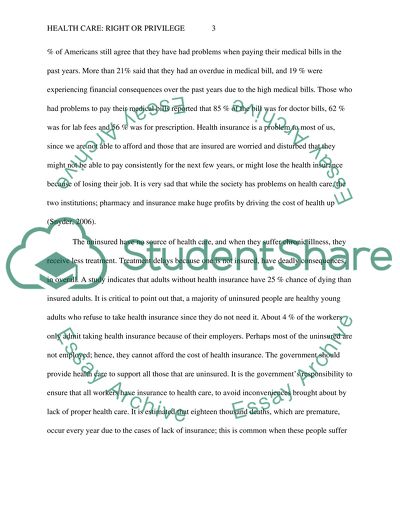Cite this document
(“Health Care: Right or Privilege Research Paper Example | Topics and Well Written Essays - 2250 words”, n.d.)
Retrieved from https://studentshare.org/sociology/1453193-health-care-right-or-privilege
Retrieved from https://studentshare.org/sociology/1453193-health-care-right-or-privilege
(Health Care: Right or Privilege Research Paper Example | Topics and Well Written Essays - 2250 Words)
https://studentshare.org/sociology/1453193-health-care-right-or-privilege.
https://studentshare.org/sociology/1453193-health-care-right-or-privilege.
“Health Care: Right or Privilege Research Paper Example | Topics and Well Written Essays - 2250 Words”, n.d. https://studentshare.org/sociology/1453193-health-care-right-or-privilege.


